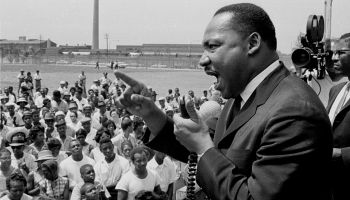Like his predecessors, President Donald Trump plans to commemorate Black History Month with an official proclamation, a gala and receptions at the White House to celebrate the contributions of the United States’ black citizens.
“I’m proud to honor this heritage and will be honoring it more and more,” Trump said Tuesday as he surrounded himself with African-American supporters and government officials invited to the White House for a listening session.
Black History Month is considered one of the nation’s oldest organized history celebrations, and has been recognized by U.S. presidents for decades through proclamations and celebrations. Here is some information about the history of Black History Month.
HOW DID IT START?
It was Carter G. Woodson, a founder of the Association for the Study of African American History, who first came up with the idea of the celebration that became Black History Month. Woodson, the son of recently freed Virginia slaves, who went on to earn a Ph.D in history from Harvard, originally came up with the idea of Negro History Week to encourage black Americans to become more interested in their own history and heritage. Woodson worried that black children were not being taught about their ancestors’ achievements in American schools in the early 1900s.
“If a race has no history, if it has no worthwhile tradition, it becomes a negligible factor in the thought of the world, and it stands in danger of being exterminated,” Woodson said.
WHY FEBRUARY?
Woodson chose February for Negro History Week because it had the birthdays of President Abraham Lincoln and Frederick Douglass. Lincoln was born on Feb. 12, and Douglass, a former slave who did not know his exact birthday, celebrated his on Feb. 14.
Daryl Michael Scott, a Howard University history professor and former ASAAH president, said Woodson chose that week because black Americans were already celebrating Lincoln’s and Douglass’s birthdays. With the help of black newspapers, he promoted that week as a time to focus on African-American history as part of the celebrations that were already ongoing.
The first Negro History Week was announced in February 1926.
CLICK HERE to read story
source: Cleveland19.com
















